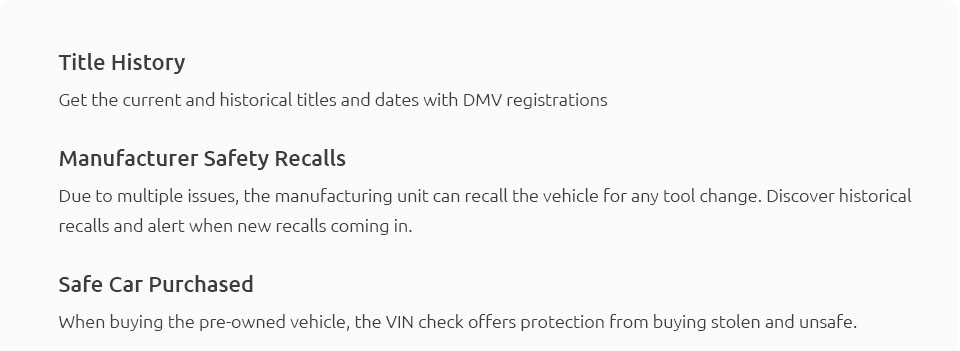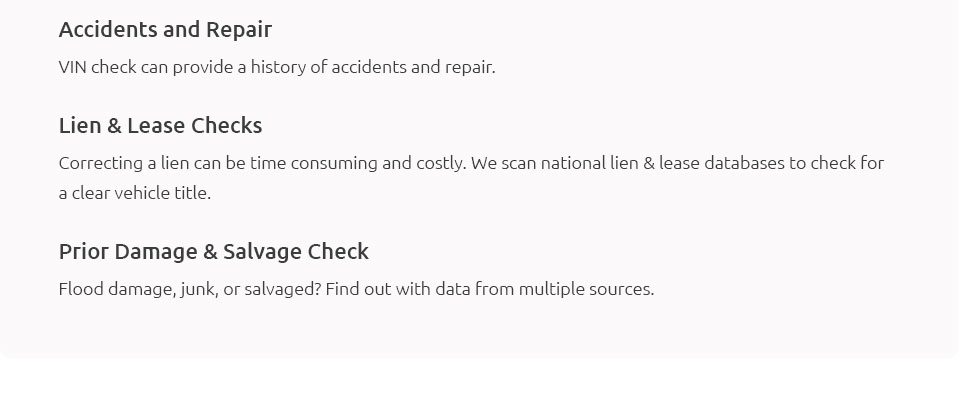 |
 |
 |
 |
 |
||
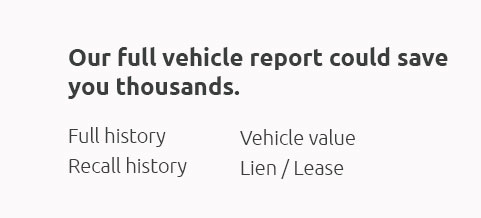 |
 |
|
 |
 |
|
 |
 |
 |
 |
||
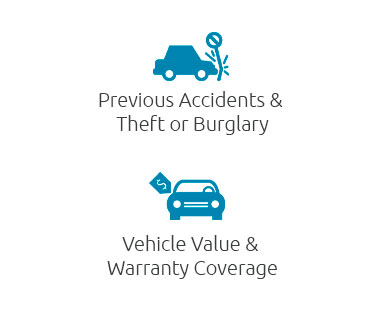 |
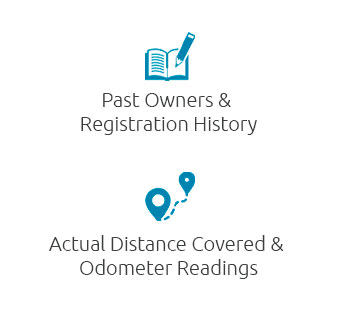 |
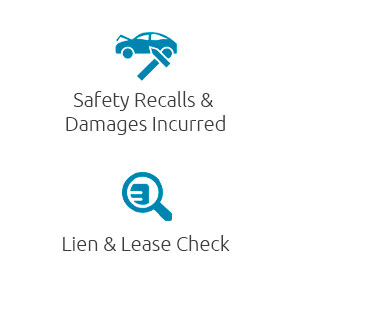 |
 |
 |
 |
||||
|
||||
 |
 |
Understanding Used Value by VIN: A Comprehensive GuideIn today's dynamic automotive market, the concept of determining a vehicle's used value by its Vehicle Identification Number (VIN) has become an indispensable tool for both buyers and sellers. The VIN serves as a unique identifier for each vehicle, similar to a fingerprint, and provides a wealth of information that can significantly influence its resale value. This article aims to elucidate the process of evaluating a vehicle's worth using its VIN, highlighting the benefits, challenges, and key considerations involved. First and foremost, the VIN is a 17-character code that encompasses a myriad of details about the vehicle, including its manufacturer, model, engine type, and production year. By leveraging this information, one can access comprehensive reports that outline a vehicle's history, such as previous ownerships, accident history, and service records. Such insights are crucial for determining the true used value of a car, as they provide transparency and help in making informed decisions. One might wonder, why is it so essential to evaluate a car's worth based on its VIN? The answer lies in the sheer accuracy and depth of data that can be uncovered through VIN-based evaluations. Not only does this approach ensure a more precise assessment of a vehicle's condition, but it also facilitates a fair pricing mechanism. This process eliminates much of the guesswork and subjectivity that often plagues traditional methods of vehicle appraisal. However, while the benefits are substantial, there are also challenges to consider. The quality of information retrieved can vary, and not all databases provide the same level of detail or accuracy. Thus, it is paramount to rely on reputable sources and services that offer comprehensive VIN lookup options. For instance, using services such as free vin search owner can provide valuable insights without incurring significant costs. Additionally, for those dealing with specific brands, such as Polaris vehicles, targeted tools like the polaris vin number lookup can offer brand-specific details that enhance the precision of the valuation. It is also worth noting that while VIN-based evaluations are highly effective, they should ideally be complemented by a physical inspection and a test drive to ensure that the vehicle's current condition aligns with the historical data. This holistic approach ensures that the buyer or seller can negotiate from a position of strength and confidence.
In conclusion, using the VIN to determine a vehicle's used value is a powerful strategy that blends modern technology with traditional appraisal techniques. As the automotive market continues to evolve, embracing such innovative approaches will remain crucial for anyone involved in buying or selling used cars. The key is to stay informed, use reliable resources, and approach the process with a balanced perspective. https://www.cbs42.com/news/how-to-look-up-your-used-cars-value-by-vin/
With the VIN, buyers, owners, and sellers can determine a used car's value through various online appraisal tools. https://autos.yahoo.com/look-used-car-value-vin-233438872.html
With the VIN, buyers, owners, and sellers can determine a used car's value through various online appraisal tools. These tools take trim level, ... https://www.jdpowervaluesonline.com/
Get JD Power Values for used cars, certified pre-owned cars and more, brought to you by JDPower.com.
|

